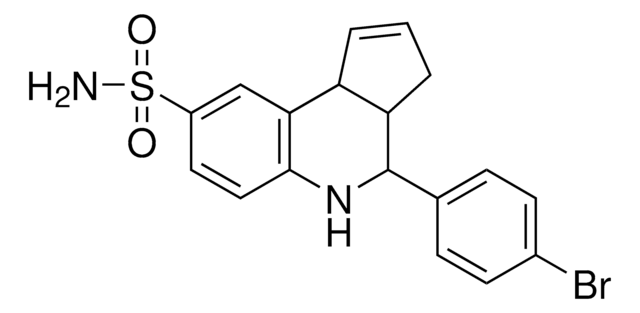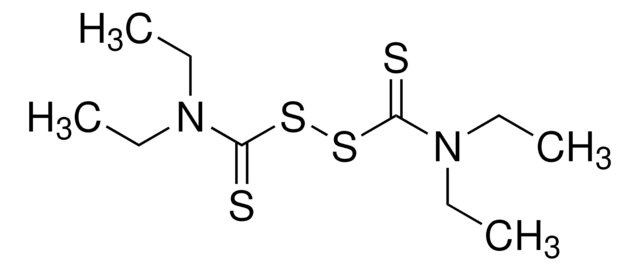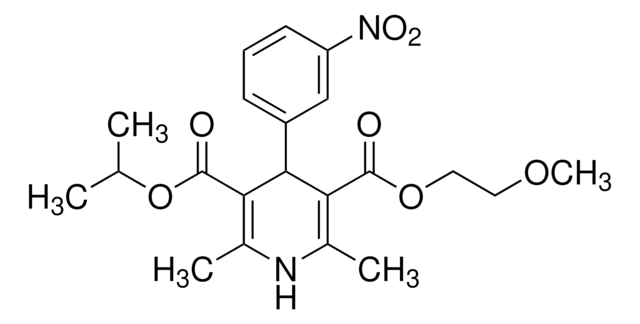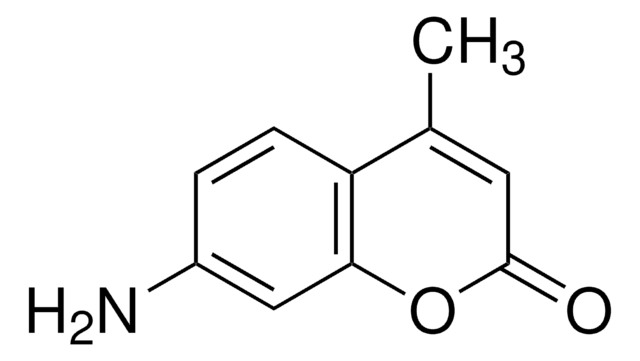SML1105
UCF-101
≥98% (HPLC)
Synonyme(s) :
Dihydro-5-[[5-(2-nitrophenyl)-2-furanyl]methylene]-1,3-diphenyl-2-thioxo-4,6(1H,5H)-pyrimidinedione
About This Item
Produits recommandés
Pureté
≥98% (HPLC)
Forme
powder
Couleur
light orange to dark orange
Solubilité
DMSO: 5 mg/mL, clear (warmed)
Température de stockage
−20°C
Chaîne SMILES
S=C(N(C1=CC=CC=C1)C2=O)N(C3=CC=CC=C3)C(C2=CC4=CC=C(C5=CC=CC=C5[N+]([O-])=O)O4)=O
InChI
1S/C27H17N3O5S/c31-25-22(17-20-15-16-24(35-20)21-13-7-8-14-23(21)30(33)34)26(32)29(19-11-5-2-6-12-19)27(36)28(25)18-9-3-1-4-10-18/h1-17H
Clé InChI
NVNSXBXKNMWKEJ-UHFFFAOYSA-N
Application
Actions biochimiques/physiologiques
Caractéristiques et avantages
Code de la classe de stockage
11 - Combustible Solids
Classe de danger pour l'eau (WGK)
WGK 3
Point d'éclair (°F)
Not applicable
Point d'éclair (°C)
Not applicable
Certificats d'analyse (COA)
Recherchez un Certificats d'analyse (COA) en saisissant le numéro de lot du produit. Les numéros de lot figurent sur l'étiquette du produit après les mots "Lot" ou "Batch".
Déjà en possession de ce produit ?
Retrouvez la documentation relative aux produits que vous avez récemment achetés dans la Bibliothèque de documents.
Contenu apparenté
n proliferating cells, the cell cycle consists of four phases. Gap 1 (G1) is the interval between mitosis and DNA replication that is characterized by cell growth. Replication of DNA occurs during the synthesis (S) phase, which is followed by a second gap phase (G2) during which growth and preparation for cell division occurs. Together, these three stages comprise the interphase phase of the cell cycle. Interphase is followed by the mitotic (M) phase.
Apoptosis, or programmed cell death (PCD), is a selective process for the removal of unnecessary, infected or transformed cells in various biological systems. As it plays a role in the homeostasis of multicellular organisms, apoptosis is tightly regulated through two principal pathways by a number of regulatory and effector molecules.
Notre équipe de scientifiques dispose d'une expérience dans tous les secteurs de la recherche, notamment en sciences de la vie, science des matériaux, synthèse chimique, chromatographie, analyse et dans de nombreux autres domaines..
Contacter notre Service technique






